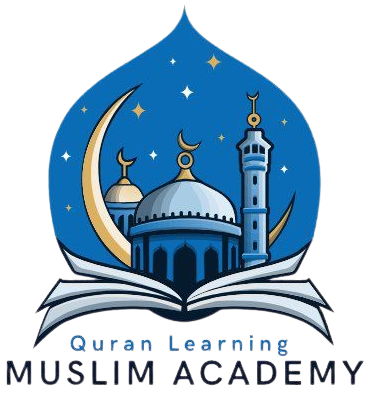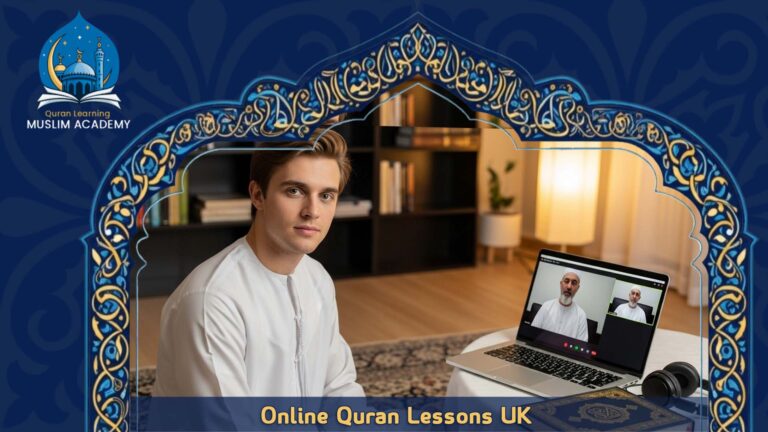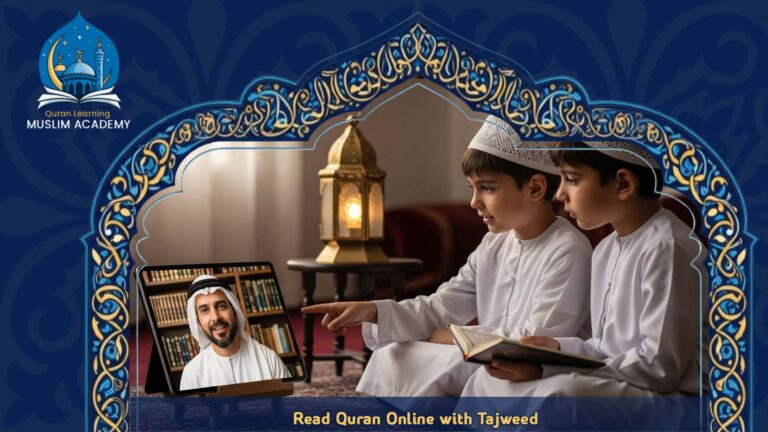Arabic Language: Everything You Need to Know
At Muslim Academy, learning the arabic language opens doors to a world of culture, history, and communication that spans continents.
Students in London, UK, can now begin their journey in mastering this influential language through carefully structured courses and immersive learning experiences. Understanding the arabic language allows learners to read and write fluently while connecting them to a rich literary heritage.
With over 400 million native speakers globally, studying arabic language offers academic, professional, and cultural advantages. Join us to explore the fascinating traditions and modern applications of Arabic worldwide.
The Rich History of Arabic Language
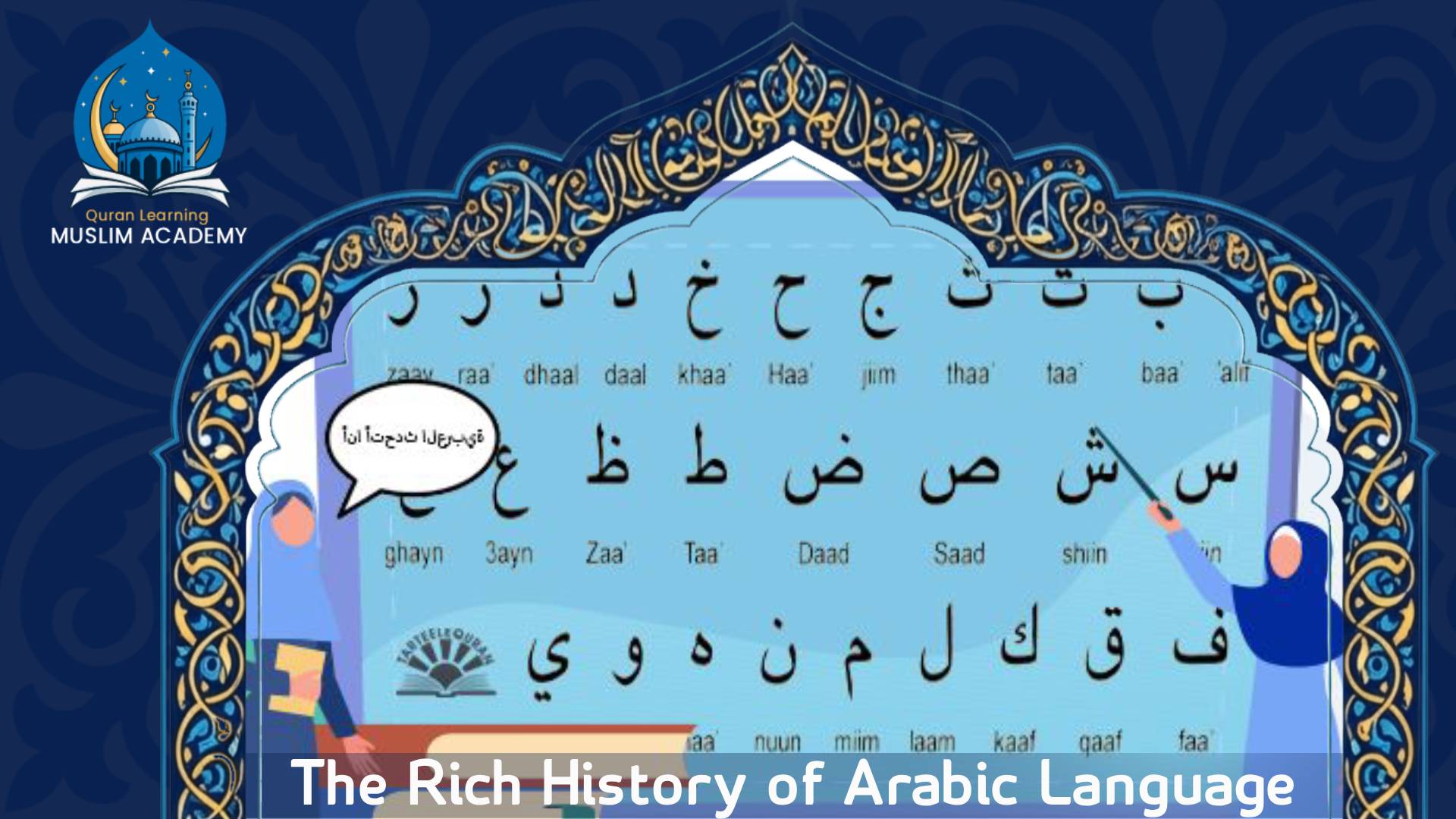
The arabic language is one of the oldest Semitic languages, evolving over centuries in North Africa, the Arabian Peninsula, and the Middle East.
Classical Arabic, the language of the Qurʾān, remains highly influential in literature, religious texts, and formal communication. Modern Standard Arabic, derived from classical forms, is widely used in media, education, and official documents.
Spoken dialects vary across regions, sometimes making comprehension between speakers challenging. Learning arabic language provides a deep understanding of cultural evolution, connecting students to the literary achievements and intellectual heritage of the Arab world.
Start Your Arabic Language Journey Today
Embark on a life-changing journey at Muslim Academy by enrolling in our arabic language courses designed for all skill levels.
Whether you are in London, Australia, Canada, Sweden, or the USA, our expert instructors guide you through structured lessons that focus on reading, writing, and conversational skills.
With personalized support, immersive exercises, and cultural insights, learning arabic language becomes a fulfilling and engaging experience.
Students explore various dialects, classical texts, and modern communication methods, ensuring comprehensive mastery. Start now to unlock opportunities in education, travel, and professional growth across the globe.
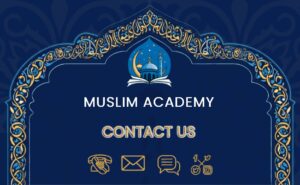
Modern Standard Arabic and Classical Roots
Mastering both Modern Standard Arabic (MSA) and Classical Arabic provides learners with the tools to understand contemporary communication and timeless literary texts. At Muslim Academy, we guide students in London and abroad to balance these two forms effectively.
Modern Standard Arabic (MSA) for Everyday Use
Modern Standard Arabic is the official language used in education, media, and professional communication. Learning MSA allows students to read newspapers, watch news broadcasts, and participate in formal discussions across the Arab world. It provides a standardized foundation that bridges different regional dialects, making communication more accessible.
Classical Arabic in Literature and Religion
Classical Arabic, the language of the Qurʾān and historical texts, is central to literature, theology, and scholarly writing.
At Muslim Academy, we use Qurʾānic verses and classical literature to enhance comprehension, improve vocabulary, and deepen understanding of grammar. This knowledge connects students to centuries of literary and cultural heritage.
Grammatical Structures, Roots, and Patterns
The arabic language features rich grammatical systems, root patterns, and morphological structures that reveal semantic relationships between words.
Studying these patterns helps learners understand word formation, meaning, and proper sentence construction. This insight is invaluable for reading, writing, and speaking fluently.
Practical Applications Across the Globe
Understanding both Modern Standard Arabic and Classical Arabic enables learners to engage with Arabic media, international correspondence, and multicultural dialogues.
Students in countries like Canada, Sweden, Australia, the USA, and the UK can communicate confidently in formal settings and academic environments.
read more: how to speak arabic step by step
Choosing the Right Arabic Dialect
Learning the arabic language involves selecting a dialect based on your personal or professional goals. Egyptian Arabic is widely spoken and useful in media, while Levantine Arabic is common in Syria, Lebanon, and Jordan.
Moroccan Arabic and Gulf dialects are regionally significant and offer unique pronunciation and vocabulary challenges. Our courses in London provide exposure to Modern Standard Arabic and key dialects through immersion and practice.
Whether you plan to work internationally or explore cultural contexts in the UK, USA, Australia, Canada, or Sweden, choosing the right dialect ensures effective communication.
Arabic Language and Global Relevance
With over 400 million native speakers and millions more learning it as a second language, the arabic language has significant global importance. Arabic is the sixth most spoken language worldwide and an official language of the United Nations
. Proficiency in Arabic enables professional opportunities in diplomacy, international business, education, and cultural exchange. Students in London, Sweden, and the USA can leverage their Arabic skills for careers in global companies and NGOs.
Learning arabic language opens doors to understanding Islamic culture, historical texts, and contemporary Middle Eastern societies.
Arabic Literature: From Poetry to Prose
The literary tradition of the arabic language spans over sixteen centuries, with early poetry and Qurʾānic recitation forming the foundation of its written culture.
Classical literature influenced European intellectual traditions via Al-Andalus and the Ottoman Empire. Modern Arabic literature blends classical roots with contemporary themes, providing a window into cultural and societal dynamics.
Students at Muslim Academy study texts that illustrate grammar, vocabulary, and stylistic richness. Learning Arabic literature allows learners in London, Canada, and Australia to appreciate historical texts and modern novels, connecting them with the global Arab literary community.
Arabic Language in Education Systems
Learning Arabic is more than acquiring a language; it opens doors to cultural understanding, critical thinking, and global communication. Schools and educational institutions play a crucial role in making Arabic accessible to students.
Current Status in Schools
Teaching the arabic language remains limited in many countries, including the UK. Only a few state schools offer Arabic as a formal subject, and it is often restricted to faith-based or supplementary programs. This limits opportunities for students to engage deeply with the language and its cultural context.
Global Initiatives for Expansion
Various educational organizations are working to expand Arabic teaching in cities like London, Stockholm, Toronto, and Sydney. These initiatives aim to promote intercultural understanding, improve literacy, and help students appreciate the linguistic richness of the Arab world.
Benefits of Studying Arabic
Studying Arabic enhances critical thinking, reading comprehension, and awareness of global issues. It equips learners with the skills to navigate multicultural environments, engage with Arabic media, and participate in international dialogues.
Muslim Academy’s Approach
At Muslim Academy, we provide tailored courses that meet international educational standards. Our programs are designed for learners of all ages, offering structured lessons in reading, writing, and conversational Arabic.
Students can study in London or online from countries like Sweden, Canada, Australia, and the USA, ensuring flexible and comprehensive learning opportunities.
Arabic in the Digital Era
Technology has transformed how learners approach the arabic language, with online courses, apps, and interactive platforms offering immersive experiences.
Students can connect with native speakers in Australia, the USA, Sweden, and Canada, practicing speaking, listening, and writing in real time. Digital resources make Arabic more approachable, supporting vocabulary, grammar, and pronunciation development.
Muslim Academy combines traditional teaching with digital tools to provide comprehensive guidance. Learning arabic language online allows global students to master Arabic at their own pace while engaging with a supportive international community.
Cultural Insights Through Arabic Learning
Understanding the arabic language is inseparable from exploring Arab culture, traditions, and history. Language learners discover regional customs, culinary traditions, literature, music, and art.
Courses in London and online for students in Canada, Sweden, Australia, and the USA emphasize cultural immersion alongside linguistic skills. Learning Arabic promotes intercultural dialogue, empathy, and global awareness.
Students gain insights into the Middle East and North Africa, creating meaningful connections and fostering appreciation for Arab societies while mastering both Modern Standard Arabic and regional dialects.
Arabic Language for Career Growth
Proficiency in the arabic language enhances career prospects in international business, diplomacy, translation, and education.
Companies in the Middle East, Europe, and North America actively seek Arabic speakers for communication, negotiation, and research. Learning Arabic equips professionals in London, Canada, USA, Sweden, and Australia with a competitive edge.
Muslim Academy emphasizes practical language use, preparing students for interviews, presentations, and correspondence. Fluency in Arabic enables students to navigate professional environments confidently while accessing a wide range of global opportunities.
Qurʾān and Classical Arabic
Classical Arabic, the language of the Qurʾān, serves as a foundation for the arabic language curriculum at Muslim Academy. Recitation and interpretation of Qurʾānic verses enhance vocabulary, grammar, and pronunciation.
Students learn tajwīd, comprehension, and writing skills, deepening spiritual and cultural understanding. London-based learners, along with students in Australia, USA, Sweden, and Canada, benefit from interactive lessons that blend religious and linguistic study.
Mastering the Qurʾān’s Arabic prepares learners for academic research, literary analysis, and meaningful engagement with global Arabic-speaking communities.
read also: quran in arabic why its important to learn
Arabic Language Resources and Learning Strategies
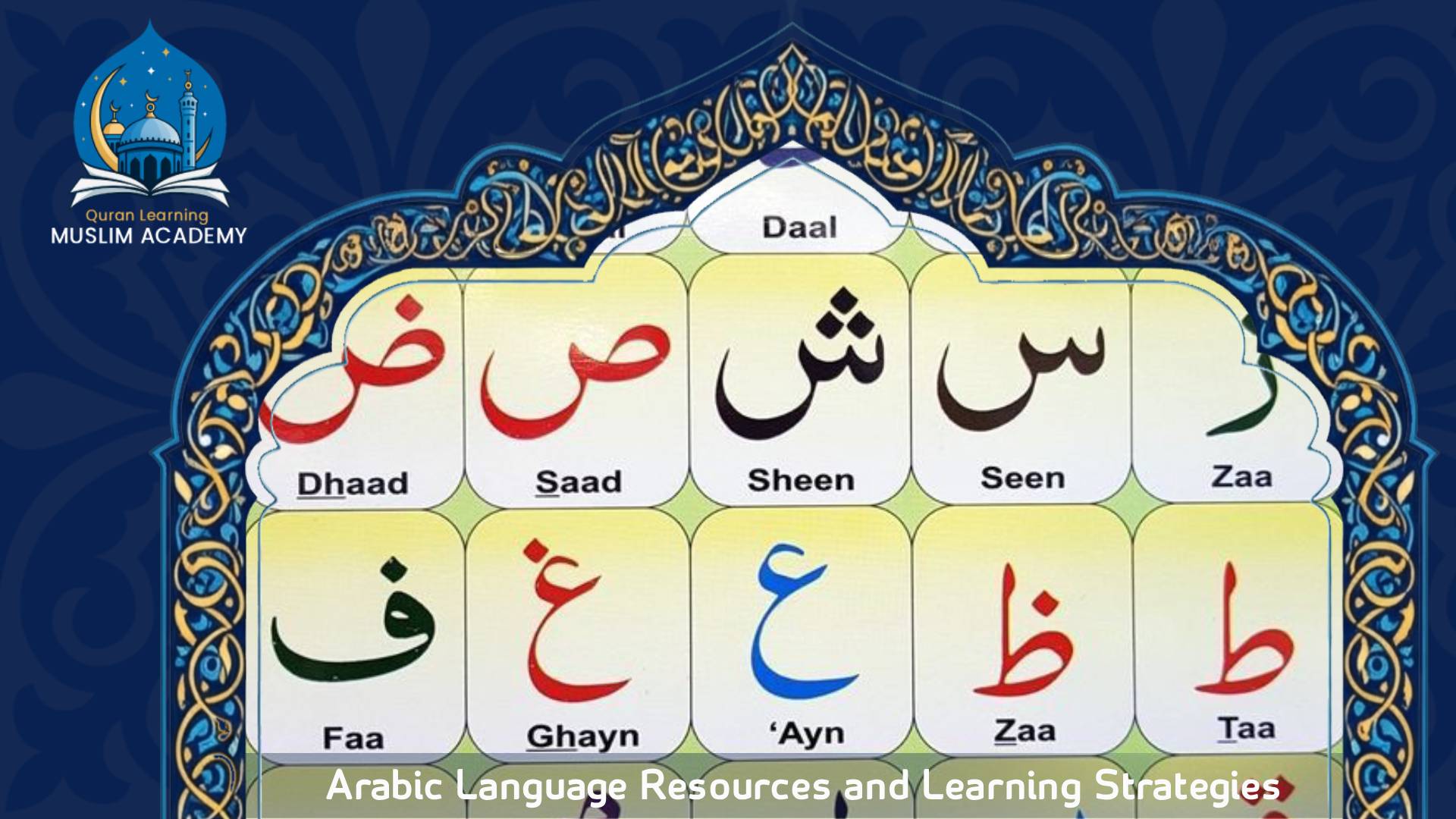
Effective learning of the arabic language requires structured resources, practice, and guidance. At Muslim Academy, students access textbooks, multimedia tools, writing exercises, and conversation sessions.
Immersive programs in London, along with online options for Sweden, USA, Canada, and Australia, help reinforce skills daily. Learning strategies focus on grammar, vocabulary, dialects, and comprehension. Regular practice, exposure to native speakers, and cultural engagement enhance fluency.
Students gain confidence in reading, writing, and speaking Arabic, preparing them for real-life interactions and global opportunities.
FAQs: Learning Arabic Language
Sentence between FAQ heading and first question:
Here are the most important questions to help you understand how to learn the Arabic language and make the most of our programs.
Q1: Can beginners start without prior knowledge?
Yes. Courses at Muslim Academy guide students from basic letters to full fluency in reading, writing, and speaking Arabic.
Q2: Which dialect should I learn first?
Modern Standard Arabic is recommended for all learners, with Egyptian or Levantine dialects introduced at higher levels for practical use.
Q3: Are online courses effective?
Absolutely. Online lessons provide interactive learning, cultural immersion, and access to native-speaking instructors worldwide, including London, USA, and Canada.
Q4: Is Arabic difficult for English speakers?
It requires dedication, but structured teaching, immersion, and consistent practice make fluency achievable in months, especially with expert guidance.
In Conclusion, Learning the arabic language at Muslim Academy provides unparalleled access to culture, history, literature, and global opportunities. Students in London, along with learners in the USA, Canada, Sweden, and Australia, gain practical language skills, cultural insights, and career advantages.
Arabic connects learners to one of the world’s most spoken languages and a rich literary heritage. With comprehensive courses, expert instructors, and immersive experiences, mastering Arabic is achievable and rewarding. Start your journey today and experience the transformative power of the arabic language across continents.
